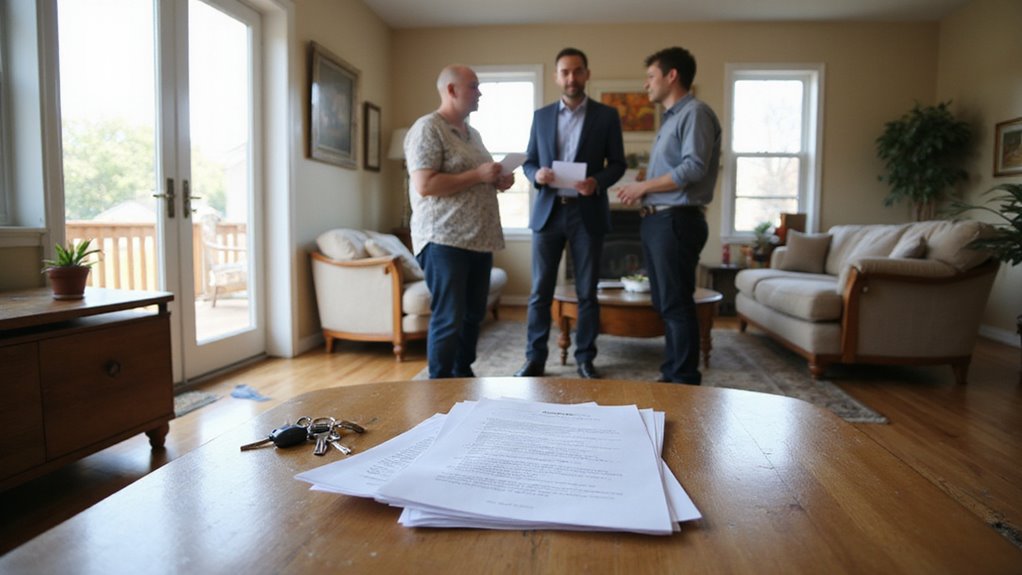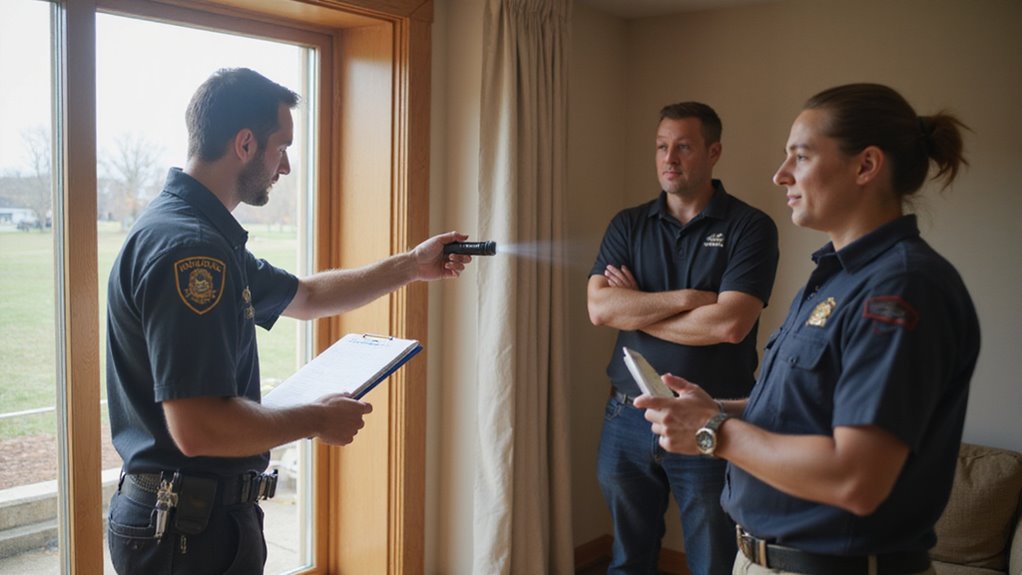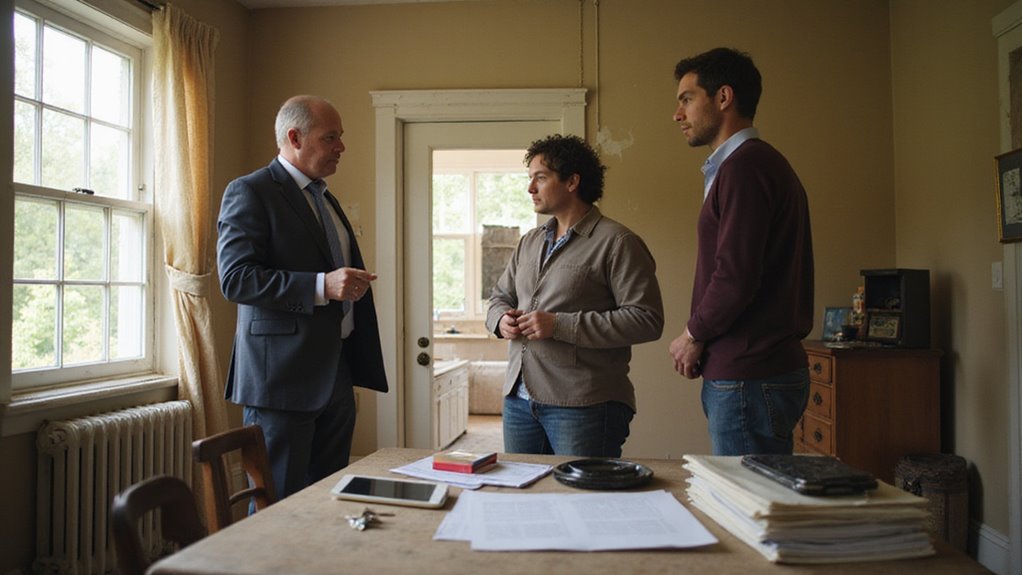Selling a house as-is in Virginia can seem like a simple way to avoid repairs and move on quickly. Many homeowners believe that selling as-is means they have no further obligations. However, the legal requirements in Virginia can be confusing and risky if you do not fully understand them.
If you ignore these rules, you might face expensive legal trouble even after the sale is final. Buyers expect honesty and clear information, and state laws back them up. Missing a required disclosure could put your finances and reputation in danger.
Virginia law still requires sellers to follow strict disclosure rules, even with an as-is home sale. The good news is you can protect yourself with the right steps. Understanding your responsibilities makes the process smoother and safer. This blog will explain what you need to know so you can sell your home as-is with confidence and peace of mind.
Key Takeaways
- Sellers must disclose all known material defects using Virginia’s required disclosure forms, even in as-is transactions.
- Selling as-is does not exempt sellers from liability for fraud or misrepresentation regarding the property’s condition.
- Buyers are strongly encouraged to conduct their own inspections and due diligence before finalizing the purchase.
- The sales contract should clearly state the as-is status, include all disclosures, and outline inspection and dispute procedures.
- Agents and sellers can face legal or licensing penalties if they fail to properly disclose material facts or known issues.
Understanding the Meaning of “As-Is” Sales in Virginia

In Virginia, selling a home “as-is” means the property is offered in its current condition. The seller does not promise to fix any problems or guarantee there are no defects. Buyers should know they are responsible for any repairs after purchase. If the house has significant issues, it may affect property value and sale challenges that buyers and sellers should be aware of. Buyers can still ask for a home inspection. If the inspection finds issues, buyers may try to negotiate the price. Sellers do not have to agree to repairs or lower the price.
If you are selling “as-is,” make your terms clear from the start. This helps avoid misunderstandings and legal disputes later. Both parties should understand their rights and responsibilities before signing the contract. It is also important for sellers to disclose any known home condition issues, as ethical disclosures can impact negotiations and help build trust with buyers.
Seller Disclosure Obligations Under Virginia Law
You must complete all required disclosure forms under the Virginia Residential Property Disclosure Act, even when selling as-is. You’re obligated to report known material defects that could affect property value or safety. The buyer must formally acknowledge receipt of these disclosures before the transaction proceeds.
Virginia law also requires that sellers disclose foundation issues and any other structural concerns that may impact a buyer’s decision, ensuring full transparency during the sale process. Additionally, being transparent about all known issues can help build trust with buyers and streamline negotiations, making the sale process more efficient.
Required Disclosure Forms
Virginia law requires sellers to provide certain disclosure forms, even when selling a house as-is. These forms tell buyers important details about the property. Sellers cannot skip these forms, even if no repairs are made.
The main form is the Virginia Residential Property Disclosure Statement. This form tells buyers to check the property’s condition themselves. It also mentions neighborhood features and home staging, but does not guarantee the home’s condition.
If the house was built before 1978, sellers must also give a Lead-Based Paint Disclosure. This is a federal rule. It warns buyers about possible lead paint risks.
Sellers need to say if the home is near a military air installation. This helps buyers understand possible noise or safety issues. The form is required if the home is in these zones.
A Special Tax Assessment Disclosure is necessary if the home is in a district with extra taxes. Buyers should know about these financial obligations. Not all homes will need this form.
A Septic System Disclosure is needed if the property has a septic system. This form gives details about the system’s type and location. Buyers can use this information when inspecting the property.
Material Defect Reporting
Virginia law says sellers must tell buyers about known material defects, even if selling the property as-is. You do not need to inspect or guarantee the property’s condition. Sellers must share defects that could affect the property’s value or a buyer’s choice.
Material defects include things like foundation problems or major structural damage. If you know about these issues and do not disclose them, you could be held responsible later. The law requires disclosure of hidden (latent) defects, not ones that are obvious (patent).
Honest reporting of defects helps avoid disputes and supports fair pricing. Buyers are more likely to trust sellers who are transparent. Accurate disclosures protect both parties during the sale.
Buyer Acknowledgment Process
Before a sale is final in Virginia, buyers must sign a disclosure acknowledgment. This confirms you received and reviewed the seller’s statement about property defects. The process is required by law.
Your signature shows you understand the property’s known issues. If you skip this step, closing can be delayed or canceled. Signing protects both the buyer and the seller.
Home staging or appraisals do not replace the need for acknowledgment. If you want a smooth transaction, follow this step carefully. The process also helps you feel confident and informed.
People may feel anxious when they find defects. Many feel relieved knowing they followed the law. A clear process also builds trust.
Completing the acknowledgment protects your investment. If you do not complete it, your contract may not be valid. Make sure to review all documents before signing.
The Virginia Residential Property Disclosure Act
Under the Virginia Residential Property Disclosure Act, you must provide buyers with a standardized disclosure statement outlining your obligations and the property’s condition. This statute clarifies what information you’re required to share and affirms the buyer’s right to receive critical property details before closing. Failing to comply could expose you to legal liability or delay the transaction.
Sellers should also be aware of Virginia’s order of lien payments, as unresolved liens can prevent the transfer of clear title and further complicate the as-is sale process. Many sellers working with cash offer buyers can streamline the process, as these buyers often purchase homes as-is and are familiar with local disclosure requirements.
Disclosure Requirements for Sellers
Virginia law requires home sellers to follow certain disclosure rules. Sellers must give buyers a Residential Property Disclosure Statement. This statement tells buyers the home is sold as-is, with no warranty on its condition.
Sellers do not have to list every defect in the home. If sellers know about hazards like lead-based paint or asbestos, they must share this information. Sellers must also tell buyers about any zoning rules that affect how the property can be used.
If a seller does not follow these rules, they could face legal trouble after the sale. It is important to provide all required information to avoid these risks.
Buyer’s Right to Information
Buyers have the right to important information during an as-is home sale. Virginia’s Residential Property Disclosure Act requires sellers to give a Disclosure Statement. This statement tells buyers to check the property’s condition themselves.
Sellers do not have to make repairs, but they must alert buyers of their responsibility. Buyers should always inspect the home for any problems. If you find issues, you can use that information when deciding to buy or negotiate.
Home staging can hide defects, so do not rely on looks alone. Inspections help reveal hidden problems that may affect the price or future repairs. Careful research lets you make smart choices in an as-is sale.
Required Disclosure Forms for Virginia Home Sellers

Virginia law requires home sellers to give buyers certain disclosure forms. You must provide the Virginia Residential Property Disclosure Statement. This is required even if you sell the home “as-is.”
The form tells buyers they are responsible for checking the home’s condition. You do not need to list every defect. However, you must share if the home is in a military air zone or involved in legal action. In cases involving fire damage and repairs, Virginia’s strict state disclosure laws require that you inform buyers about any known structural damage or unresolved insurance issues.
Marketing the home does not replace your duty to disclose. If you do not give the forms, buyers may cancel the contract. Always give the forms before the sale is final.
If you want to sell your house fast in Virginia, setting a competitive price and ensuring all disclosures are properly handled can help avoid delays at closing.
What You Don’t Have to Disclose When Selling As-Is
When selling a house as-is in Virginia, you do not have to disclose every problem with the property. The law follows a “buyer beware” approach. Buyers are responsible for checking the home’s condition themselves.
Sellers do not need to mention environmental hazards like mold or lead paint unless they know these exist. You also do not have to tell buyers about zoning changes or neighborhood rules unless they ask. Many sellers choose this route to benefit from fast closings and avoid the hassle of repairs and lengthy negotiations. If you hide problems or give false information, you could be held responsible.
Buyers should always do their own research before purchasing an as-is home. This lets them find out about any issues. Due diligence is very important in these sales. When listing as-is, sellers should understand that proper disclosure practices help reduce legal risks even though Virginia law leans toward buyer responsibility.
Inspecting the Property Before Listing As-Is

You should inspect your Virginia property before listing it as-is. A full inspection shows the true condition and any problems. If you know the issues, you can plan for buyer concerns.
A licensed home inspector checks the structure, roof, plumbing, and mechanical systems. This report helps you set a fair price and avoid future legal issues. You can use the inspection to guide your decisions. If you plan to sell to a company that purchases houses in any condition, knowing what needs repair can help you negotiate honestly.
If you want to attract buyers, improve the curb appeal with simple landscaping and cleaning. Minor cosmetic repairs can also help, even if you sell as-is. Limited home staging may show the property’s best features.
Knowing your home’s condition allows honest marketing. You can answer buyer questions confidently. If you are transparent, you may build trust with potential buyers.
When preparing for a quick sale, consider competitive pricing, minor repairs, and even virtual showings to help your property stand out in the market.
Common Defects and Issues in As-Is Transactions
When you sell a house as-is in Virginia, you’re likely to encounter issues such as undisclosed structural problems and aging major home systems. These defects can significantly impact buyer confidence and negotiation advantage. For sellers in Broadway, working with all-cash offers can help alleviate the stress of dealing with repairs, since buyers in these transactions purchase homes in any condition. It’s crucial to understand how these conditions affect your legal obligations and risk exposure during the transaction. Sellers should be aware that Virginia law requires strict disclosure rules about known property defects, so failing to disclose certain issues may result in legal challenges or delays in the sale process.
Undisclosed Structural Problems
Undisclosed structural problems can be a big worry in as-is home sales in Virginia. The seller is usually not required to reveal defects unless asked directly. Serious issues like foundation damage can affect both safety and property value.
Buyers should know that hidden problems may exist. If you do not inspect the home, you might face expensive repairs later. Always arrange for a thorough inspection before buying.
The table below shows common structural problems and why they matter:
| Structural Issue | Detection Difficulty | Potential Consequence |
|---|---|---|
| Foundation issues | High | Costly repairs, instability |
| Termite damage | Moderate | Compromised safety |
| Wall cracks | Low | Aesthetic, possible risk |
| Sagging floors | Medium | Indicates deeper problems |
If you are selling, hiding known issues could lead to legal trouble. If you are buying, careful checks can help avoid future problems. Both parties should understand the risks involved.
Aging Major Home Systems
Aging major home systems can create problems for buyers and sellers. Old HVAC units, wiring, and plumbing may need repairs soon. These issues can lower a home’s value and affect safety.
Buyers should check disclosure forms and inspection reports. If problems are found, buyers may lower their offer. If systems are near the end of their life, repairs will likely be needed.
Sellers do not have to fix these problems but must describe them honestly. Accurate information helps avoid legal trouble after the sale. If sellers misrepresent the condition, disputes may happen later.
Buyer’s Right to Inspect and Cancel the Contract

Virginia law lets buyers inspect the property before the sale is final. If the inspection finds serious problems, buyers can cancel the contract. This right applies even if the home is sold as-is.
Buyers may hire a licensed inspector to check the property. If issues are found, the buyer can cancel or ask for new terms. The inspection also helps the lender decide if the home is worth the loan amount.
Sellers do not have to fix problems, but they must tell buyers about known defects. Buyers must follow deadlines for inspections and cancellations. If the property does not appraise for enough, the buyer’s financing could fall through.
When selling a house as-is, it’s important for both parties to be aware of Virginia-specific laws and protections that safeguard buyer and seller rights during the transaction.
The Role of Real Estate Agents in As-Is Sales
Real estate agents help you with as-is sales in Virginia. They guide you on what you must legally disclose. Agents also help you market your home to attract more buyers.
An agent may suggest simple staging tips to show your home’s best features. If you follow these tips, your home may sell faster. Good staging can also help buyers overlook minor issues.
Agents negotiate contract terms and explain as-is clauses. They help you avoid agreeing to extra costs or risks. If questions arise, they handle communication to keep things clear for everyone.
Legal Risks of Withholding Material Facts

Virginia law requires sellers to share any known major problems with the property. Not telling buyers about important issues can lead to legal trouble. Selling “as-is” does not remove your duty to disclose material facts.
If you hide problems, you might face lawsuits for breaking the contract or for fraud. Courts may cancel the sale or order you to pay damages. You could also lose your good reputation in the community.
Licensed real estate agents risk losing their license if they fail to disclose material facts. Civil penalties and even punitive damages may apply if fraud is involved. Always tell buyers about any important issues to avoid these risks.
Navigating Offers and Negotiations on As-Is Properties
Selling a property “as-is” in Virginia affects how buyers make offers. Buyers usually offer less to cover expected repairs. You must set a fair price that reflects your home’s true condition.
Proper pricing helps support your asking price during negotiations. If you price too high, buyers may make low offers. Accurate pricing can reduce the chance of those low offers.
Accurate pricing strengthens your position in negotiations and helps prevent buyers from making low offers on your as-is property.
Market timing is important when selling as-is. If you list during high demand, you might get more interest. More buyers can give you more power in negotiations.
Buyers may ask for extra inspections or special terms. You do not have to make repairs beyond your stated terms. If you stand by your as-is listing, you can avoid unexpected repair costs.
Handling Title Issues and Liens in As-Is Sales
When selling your Virginia property as-is, you must identify any existing liens or encumbrances that could impede a clear transfer of title. It’s crucial to resolve title defects efficiently, as buyers and their lenders will require marketable title before closing. Addressing these issues upfront minimizes legal disputes and delays, ensuring a smoother transaction.
Identifying Existing Property Liens
Identifying property liens means finding out if anyone else has a legal claim on your house. You must do this before selling. Liens can lower your home’s value or delay the sale.
A title company or lawyer can help you search for liens. County records will show if there are unpaid debts or judgments. Check for unpaid taxes, HOA fees, or city fines as well.
If you have a mortgage or borrowed against your home, check for those liens too. Contractor liens may appear if you owe for recent work. If you are unsure, a real estate attorney can review your situation.
If you address liens early, buyers will trust your sale more. This can make the selling process faster and easier.
Clearing Title Defects
You must fix any title defects before you can transfer ownership of your Virginia property. Title defects include unpaid mortgages, judgments, or boundary problems. A title search will show if there are any issues to resolve.
If you find problems, you need to work with lienholders or legal experts to clear them. This may mean paying debts, correcting paperwork, or getting releases. If you do not fix these issues, your sale could be delayed or stopped.
A clear title makes your property more attractive to buyers and lenders. Unresolved title problems can lower demand and reduce offers. Addressing these matters early protects your sale and your property’s value in Virginia.
Finalizing the Sales Contract for an As-Is Home
When finalizing a sales contract for an as-is home in Virginia, state clearly that the property is sold as-is. The contract should also set clear limits on the seller’s responsibility. This protects both parties from misunderstandings.
The contract must note that the seller will not make repairs or give credits after inspection. If the buyer accepts these terms, both parties can move forward. All required disclosures should be attached to the agreement.
Specify inspection terms and what happens if issues are found. Define the earnest money deposit and closing steps clearly. Careful contract writing helps prevent disputes after the sale.
Protecting Yourself Legally When Selling As-Is
When selling your Virginia home as-is, you must take legal steps to protect yourself. Complete a property disclosure form and list all known problems. This step meets state laws and helps prevent future arguments.
A real estate attorney should review your contract. Your agreement must have an as-is clause and show the buyer knows the home’s condition. If you keep records of all disclosures and messages, you can defend yourself if issues arise.
Buyers using a mortgage may need repairs or inspections. You should state these requirements in writing from the start. Minimal staging can help sell your home, but do not make promises about repairs.
Taking these actions reduces your risk of legal trouble after the sale. Proper preparation makes selling as-is safer and smoother.
Conclusion
If you decide to sell your house as-is in Virginia, you must pay close attention to legal requirements. Failing to disclose known defects could lead to future problems. Sellers who follow the rules protect themselves from legal issues.
If you want a faster, simpler sale, selling for cash may be a good choice. We buy houses for cash and handle many of the required steps. This can help you avoid the stress of traditional sales.
If you are ready to sell your house as-is, we at Align Real Estate Solutions can help. We guide you through every step and ensure compliance with Virginia law. Contact us today to get started with a fair cash offer.
Author
-

Zach Koops is co-founder and Real Estate Success Manager at Align Real Estate Solutions, serving homeowners across Virginia since 2024. With a passion for real estate and a heart for people, Zach has built his career around helping sellers navigate tough situations—foreclosure, inheritance, relocation, repair-overload—with clarity and compassion. He’s known for being straightforward, steady under pressure, and deeply invested in relationships. Outside of work, he spends his time as a husband and father, enjoys the outdoors in Shenandoah Valley, loves singing on stage, and constantly seeks growth through reading and new experiences.









